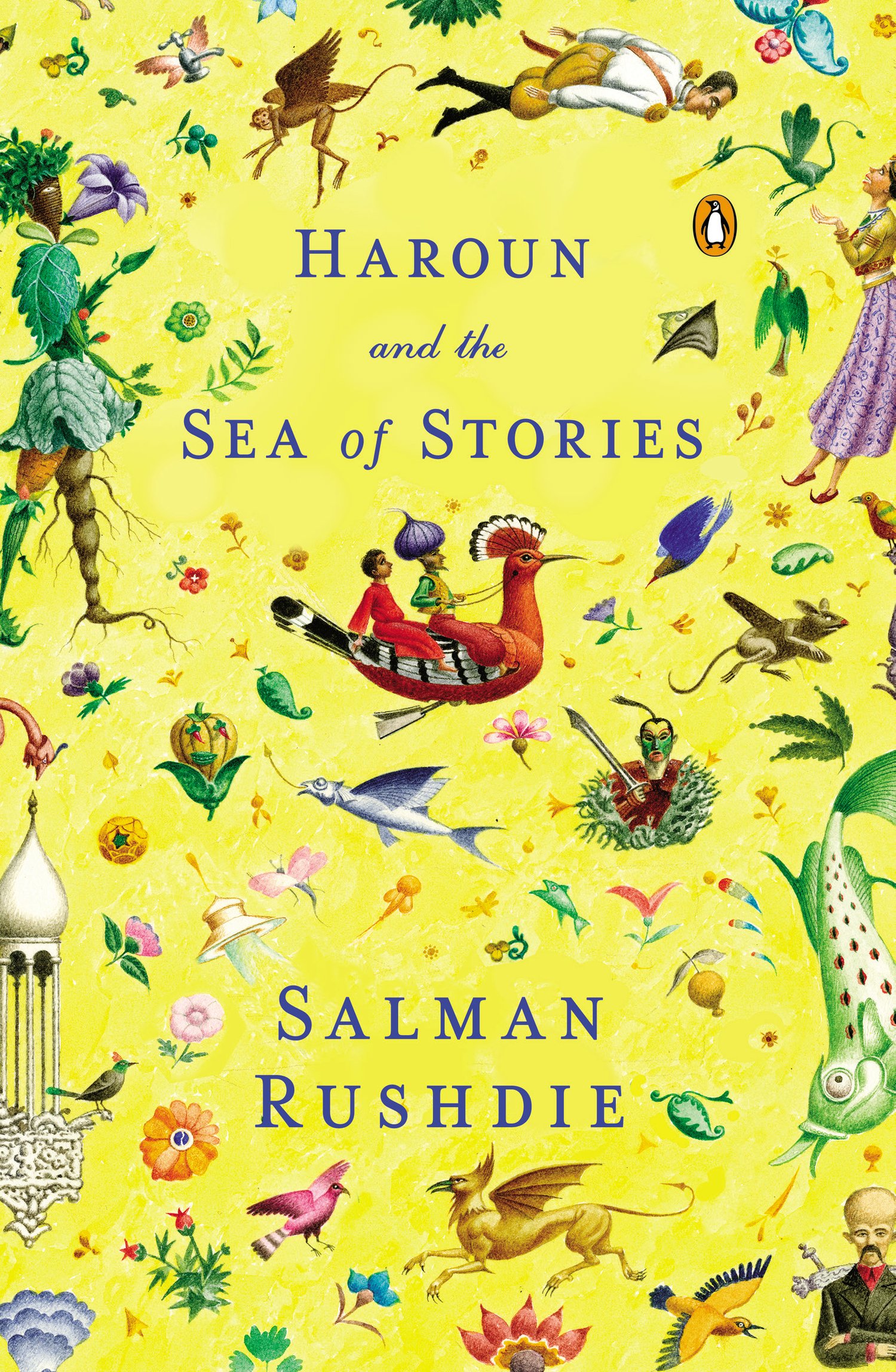Haroun
and the Sea of Stories is a novel that’s a bit difficult
to talk about. It’s by the prolific and celebrated author Salman Rushdie who’s
managed to acquire a pretty controversial image while also being loved for his
fiction. It also is one of those children’s novels that can be read as a simple
adventure story from a child’s perspective, but as an adult can be a sort of
allegory for something more political (example: Animal Farm by George Orwell).
At the surface level, this is a very competently
written novel. The prose is sharp, not overwritten, with vivid and colorful
descriptions. The world is very vibrant and there’s an undercurrent of humor
and satire in just about every name and description. The story is only about
200 pages long, which is refreshing considering how overly bloated many fantasy
books are today, even self-contained ones for young readers.
The characters are very well drawn.
Haroun is a very good reluctant hero—resourceful, intelligent, and
compassionate, with just enough naivety and hot temper to keep him balanced.
Iff the Water Genie and Butt the Hoopoe were very fun characters, as were
Blabbermouth, his father Rashid, Mali, and . . . Who am I kidding? I loved
every character in this book—even the prince and his future wife.
As mentioned before, the story can be
read as a simple adventure story as Rashid and Haroun work together to get
Rashid back his ability to tell stories and also save the Sea of Stories. Yes,
this is a novel about stories. If you like that kind of thing, this just may be
the book for you. There were a few moments in the novel that reminded me of
celebrated classics like The Wonderful
Wizard of Oz, The Phantom Tollbooth,
and Alice in Wonderland. This comes
as high praise as I can easily name all of the above as some of the best
children’s fantasy I’ve ever read, and this book certainly makes it onto that list.
This is not to say that it’s perfect or
for everyone. Some of the narrative moments were a bit daunting, though this
may be due to its old school self-referential writing style and British
English. Also, the story felt to be a bit too much like a boy’s club. Then
again, so was The Phantom Tollbooth
and that’s probably my third favorite novel ever, so it may not deter you. This
is a tale that’s been told many times before and you may already be sick of
reading stories like it. In terms of how well it delivers on its premise, this
is a phenomenal novel and one of the most underrated children’s novels I’ve
ever read. Hopefully in the future it will become popular enough in America to
be taught in the school system—after all, it’s based on Indian folklore, which
is always valuable in the on-going diversity conversation. And students should love
it if only for it being a wonderful tale.
P. S. There's a sequel to this book that came out in 2010. I plan to read it at some point, but my college classes and my backlog is pretty long. If I like it, I may cover it—this blog is mainly about the positive.

No comments:
Post a Comment